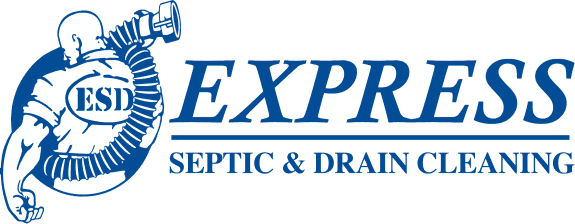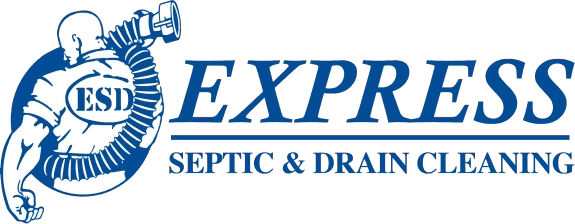Septic system zoning laws in Idaho play a critical role in regulating the installation, maintenance and operation of septic systems across the state. The purpose of these regulations is to control different parts of septic system construction and use in order to safeguard public health and the environment.
Understanding Septic System Zoning Laws in Idaho
Zoning regulations aim to prevent overcrowding, contamination of water sources, soil erosion and other potential environmental hazards associated with septic systems. Lot size and density zoning laws dictate the minimum size of lots required for septic system installation and the maximum number of dwellings allowed per acre. Setback requirements mandate the distance that septic systems must sit from water bodies such as lakes, rivers and streams, as well as property lines, buildings and wells, to prevent contamination.
Soil and terrain considerations focus on the suitability of the soil for wastewater absorption and drainage, taking into account factors such as soil permeability, depth to bedrock and groundwater levels. Regulations for installation and maintenance outline specific requirements for the design, construction and upkeep of septic systems, including tank sizing, distribution methods and periodic inspections.
Zoning laws governing septic systems may vary between urban and rural areas in Idaho. Urban areas often have more stringent regulations due to higher population densities and proximity to municipal services. In contrast, rural areas may have more lenient zoning laws but still enforce standards to protect water quality and public health.
Potential Limitations on Land Use and Property Value
There may be limitations on the development potential of properties that do not comply with zoning restrictions for septic system installation. The inability to build septic systems on smaller properties, for instance, can restrict their application to certain kinds of development or require expensive alterations to meet standards.
Properties that cannot support septic system installation or are subject to setback requirements may be less desirable to buyers, resulting in lower property values. Additionally, properties with septic systems that fail to meet zoning regulations may face challenges in obtaining financing or insurance, further impacting their marketability and value.
Responsibility of Property Owners to Comply With Zoning Laws
It is the responsibility of property owners to understand and adhere to these regulations when developing, constructing or modifying their properties. Failure to comply with zoning laws can lead to enforcement actions by local authorities, including fines, stop-work orders and even legal proceedings.
To ensure compliance with zoning laws, property owners should consult with local planning departments or zoning authorities before undertaking any construction or development activities. Property owners should also stay informed about any changes or updates to zoning laws that may affect their properties. Regularly monitoring zoning ordinances and attending public hearings or meetings can provide valuable insights into evolving regulations and their potential impacts on property rights and development opportunities.
Navigating the Permitting Process
Navigating the permitting process for septic system installations in Idaho requires careful attention to detail and adherence to local regulations. Property owners must obtain the necessary permits from local health departments or environmental agencies before proceeding with any septic system construction or installation.
The permitting process typically involves submitting detailed plans and documentation outlining the proposed septic system design, including site layout, soil testing results and system specifications. Property owners may need to work with licensed professionals, such as engineers or septic system designers, to prepare and submit permit applications accurately.
After submitting the permit application, it undergoes review by the relevant regulatory authorities to ensure compliance with zoning laws, health and safety standards and environmental regulations. Depending on the complexity of the project and local permitting requirements, the review process may take several weeks to months to complete.
During the permitting process, property owners may need to address any concerns or requests for additional information from regulatory agencies. Once approved, property owners can proceed with the septic system installation according to the approved plans and specifications. Most importantly, they can proceed knowing they are in full compliance with all permit conditions and regulatory requirements.
Are There Exemptions or Waivers Available for Certain Septic System Installations?
Exemptions or waivers for certain septic system installations may be available in Idaho under specific circumstances. These exemptions typically apply to situations where standard zoning regulations may not be practical or feasible, such as for properties with unique soil conditions or limited space. Property owners may need to apply for these exemptions through the relevant local or state authorities, providing justification and supporting documentation to demonstrate the need for special consideration.
However, the availability and criteria for exemptions or waivers can vary depending on the jurisdiction and the specific circumstances of each case. It’s essential for property owners to research and consult with local regulatory agencies to understand their options and requirements for seeking exemptions or waivers.
Can I Install a Septic System on Sloped Terrain, and Are There Special Regulations for This?
Installing a septic system on sloped terrain is possible, but it often requires adherence to special regulations in Idaho. Sloped terrain presents unique challenges for wastewater management and drainage, necessitating careful planning and design to ensure the system’s effectiveness and compliance with zoning laws. Special regulations may include requirements for soil erosion control, setback distances from property lines and water bodies and specific installation techniques to prevent soil erosion or runoff.
Are There Restrictions on the Number of Dwellings That Can Share a Septic System?
In Idaho, there are usually restrictions on the number of dwellings that can share a septic system. These restrictions typically depend on factors such as lot size, soil conditions and the capacity of the septic system. Regulatory authorities may impose limits to ensure that the system can adequately handle the wastewater generated by the dwellings without causing environmental or public health concerns.
How Often Do Septic System Zoning Laws Change in Idaho?
In Idaho, zoning regulations for septic systems are subject to periodic change as a result of things like population growth, environmental concerns and technological advancements. Changes may also occur in response to legislative updates or amendments to local ordinances. Regularly checking for updates ensures compliance with current regulations and helps avoid potential penalties or issues with property development projects.
Are There Restrictions on the Use of Alternative Septic System Technologies?
Certain areas may have specific requirements or limitations regarding the use of alternative systems, such as aerobic treatment units or mound systems. These regulations aim to ensure that alternative technologies comply with health and safety standards while minimizing their environmental impact.
Can I Appeal a Decision Related to Septic System Zoning Regulations?
Yes, property owners in Idaho typically have the option to appeal decisions related to septic system zoning regulations. Typically, appeals involve submitting a formal request to the appropriate regulatory authority, such as the local planning department or zoning board, outlining the grounds for the appeal and providing supporting documentation or evidence. The appeals process allows property owners to challenge decisions they believe are incorrect or unfair.
Express Septic & Drain Cleaning is here to meet all your septic and drain cleaning needs in Nampa, ID. If you need help navigating septic system zoning laws in Nampa, ID, call Express Septic & Drain Cleaning today.



